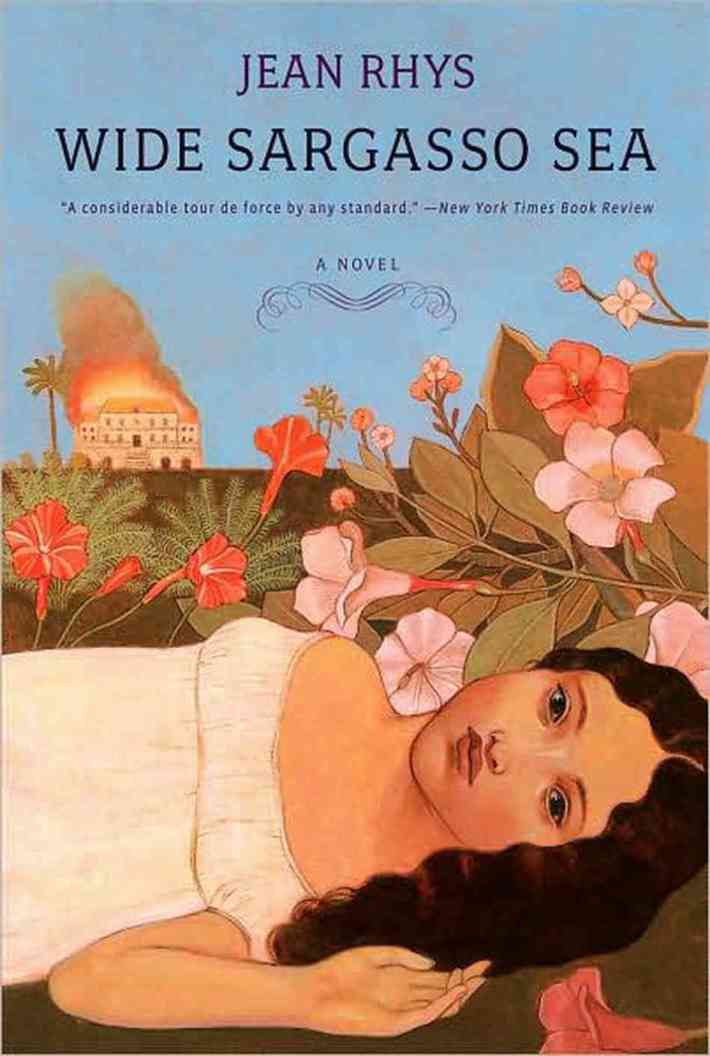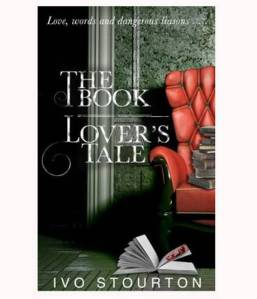 I loved Charlotte Bronte’s Jane Eyre, but the character in that book I was most interested in wasn’t Jane, it was Mr. Rochester’s “mad wife in the attic,” Bertha. I felt sorry for Bertha. I didn’t feel she was treated right. I also wanted to know more about her. I was fascinated by Bertha. I wanted to know where she came from and what it was that drove her mad. In Jane Eyre, Bertha is a raving lunatic, almost inhuman. But something had to drive this poor woman insane. Surely Rochester didn’t marry her in that state. But what could it have been? I always wondered. Of course, in Jane Eyre, Bertha functions more as a plot device, something to get Jane to run away from Thornfield Hall and Rochester, and later, to bring closure to the story. But I think any character deserves a little more humanity than that. If you felt the way I do, then Jean Rhys’ classic, Wide Sargasso Sea, is the book for you.
I loved Charlotte Bronte’s Jane Eyre, but the character in that book I was most interested in wasn’t Jane, it was Mr. Rochester’s “mad wife in the attic,” Bertha. I felt sorry for Bertha. I didn’t feel she was treated right. I also wanted to know more about her. I was fascinated by Bertha. I wanted to know where she came from and what it was that drove her mad. In Jane Eyre, Bertha is a raving lunatic, almost inhuman. But something had to drive this poor woman insane. Surely Rochester didn’t marry her in that state. But what could it have been? I always wondered. Of course, in Jane Eyre, Bertha functions more as a plot device, something to get Jane to run away from Thornfield Hall and Rochester, and later, to bring closure to the story. But I think any character deserves a little more humanity than that. If you felt the way I do, then Jean Rhys’ classic, Wide Sargasso Sea, is the book for you.
Wide Sargasso Sea is set in the colorful and exotic Jamaica of the 1830s and revolves around the early life of Creole heiress, Antoinette Cosway, the woman destined to become Rochester’s mad wife, Bertha. The story is told in three parts, though Part Three is very, very short.
In Part One of Wide Sargasso Sea, we follow Antoinette in the exotic, but oppressive, colonialist society of Jamaica as she flees the decaying plantation that was her home for Aunt Cora’s house, then, when Aunt Cora goes to England, to a convent school.
While Part One was told exclusively from Antoinette’s point of view, Part Two, which is a much longer section, is told primarily from the point of view of a very young Mr. Rochester, though he is never named, adding to his mystery. (In this book, Mr. Rochester is the mysterious character, and we get to know his beautiful wife.) Mr. Rochester is clearly in love with the young, beautiful Antoinette, but when disturbing rumors reach him regarding Antoinette’s past, Rochester begins to believe those rumors might carry more than a bit of truth, especially when some of them are confirmed by Antoinette, herself, and she begins to display some of the madness that we first saw in Charlotte Bronte’s Jane Eyre. (This isn’t a spoiler, if you’ve read Jane Eyre, you know Rochester’s wife is mad.)
Jean Rhys, herself, was more like Antoinette than Jane. Rhys was Creole, sexually promiscuous (by her own admission), and not given to Jane Eyre’s rigid self-discipline. In Antoinette, Rhys created a character she, herself could identify with, a character who was driven almost totally by emotion, a character who would be subject to bouts of irrationality, spontaneity, and mental breakdown, and who would, despite all this, always be immensely sympathetic because, after all, we understand why Antoinette is the way she is. To bring about this sympathy, Rhys makes us privy to Antoinette’s tumultuous childhood and a time when she was rejected by those she loved over and over again.
While Rochester is definitely a hero in Jane Eyre, he’s more villain than not in Wide Sargasso Sea. He clings to his rigid Victorian upbringing even as he fears it, an upbringing that forces him to separate love and sex. When he’s “in love” with his young bride, he can’t feel desire for her, and when he feels desire for her, he can’t feel love. (We have to wonder how Jane fared as his wife.) And in the end, for Antoinette, at least, it’s desire that wins out.
Wide Sargasso Sea is filled with lush imagery, exotic imagery to a man like Rochester who has come to expect the misty skies and the heath of Yorkshire, which are dull by comparison. In the Caribbean of Jean Rhys, everything seems to be constantly in bloom, constantly changing, fluid, alive, and colorful. While Antoinette glories in the heat and the color, Rochester is disturbed by it. “Everything is too much,” he says, “too much blue, too much purple, too much green.” And if the vivid colors aren’t enough, there are the strange people – Christophine and Amélie – and their strange rituals and practices. It’s all so heady and disorienting that we can almost forgive Rochester his faults. Almost, but not quite.
The book is filled with symbolism. Every major occurrence, and many minor ones as well, are echoes of another incident that took place in either Jane Eyre or earlier in Wide Sargasso Sea. And it is often through this symbolism, rather than through the narrative, itself, that the book’s true meaning emerges. The prose is hypnotic, almost like a drumbeat in a hot, tropical night. Joyce Carol Oates has suggested that Wide Sargasso Sea, with its dense and elliptical language, is more “hallucinatory prose poem” than it is novel.
As we read, we come to believe that Antoinette’s fate – to be driven mad – might just be inevitable. Indeed, Antoinette, herself seems to think so. “I would make no effort to save myself,” she says, “if anyone were to try and save me, I would refuse. This must happen.” And Rhys seems to agree with her. Her mother, after all, was driven mad by the death of her son, Antoinette’s younger brother. Antoinette’s name is so similar to her mother’s name of Annette; physically, the two are so much alike, andJane Eyre has already been written, seemingly sealing Antoinette’s fate.
Yet in Wide Sargasso Sea, we learn that Antoinette’s tragic fate need not have been. As she’s waiting with her new husband to leave the honeymoon house that was anything but happy, Rochester thinks, “If she…weeps, I’ll take her in my arms.” And Antoinette wants to weep, but she’s been warned that tears will have no effect, so she holds them back. Rochester, Victorian to the core, cannot tell his wife what it is he wants and needs. We turn pages, hoping against hope that these two will run into each other’s arms and make their true feelings known.
Readers must look to Jane Eyre to find Antoinette’s ultimate fate, though Jean Rhys has said that she imagined it as “triumphant.” I didn’t see it that way. I saw it as tragedy heaped upon tragedy, for even in death, Antoinette doesn’t exact revenge on her cruel husband, but drives him into the arms of another, instead. Antoinette might dream a triumphant and glorious jump from the towers of Thornfield Hall, but Bertha smashes to the ground, with no one to mourn her.
Jane Eyre doesn’t dictate everything, however. With Wide Sargasso Sea, Jean Rhys has changed the way readers look at Jane Eyre. Readers ofWide Sargasso Sea will not be able to easily dismiss Antoinette/Bertha even as they root for Jane. Rhys has freed Antoinette to live in ways she has never been free to live before.
There are those who have dismissed Wide Sargasso Sea as a feminist attempt to “fill in the gaps” in Jane Eyre. It’s not. It’s the well-researched and courageous story of a character who has been far too little known, and far too much forgotten. “There’s always another side,” Antoinette tells her husband, and so, we learn, there is. It behooves us not to make a judgment until we’ve heard both of them.
Recommended: Yes, especially if you liked Jane Eyre or want to know more about Bertha, the “madwoman in the attic.” Even if you haven’t read Jane Eyre, Wide Sargasso Sea is a wonderful book about the clash of the wild and the exotic with the more mundane. It’s a wonderful character study of a willful woman’s descent into madness.


